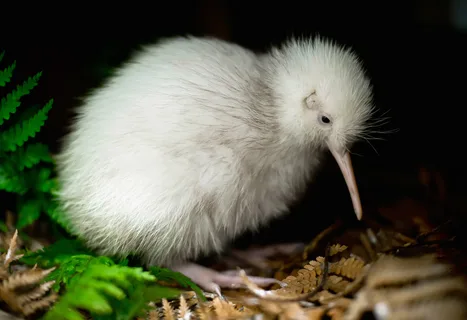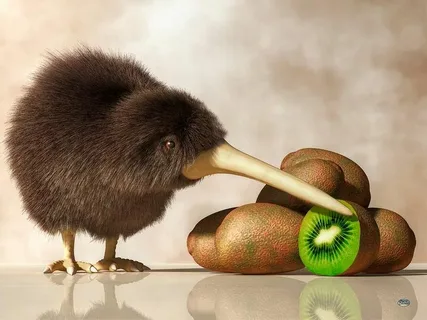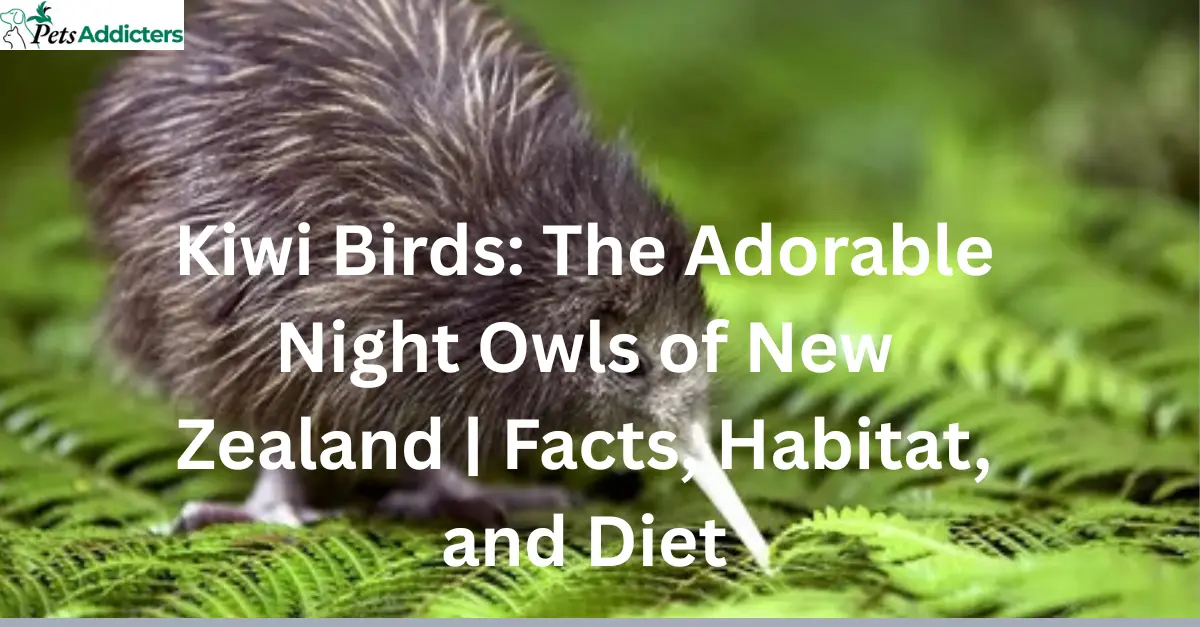You won’t believe this, but kiwi birds are among the most bizarre animals on earth. Trust me, they’re like nature’s little oddballs but in a good way. Picture a bird that can’t fly, lays an egg that’s nearly as big as it is, and only ventures out during the night. That’s right, that’s the kiwi for you.
So, let’s discuss these fuzzy night roamers and why everyone around the globe is in love with them.

Why Kiwi Birds Stand Out
Here’s my take kiwis are the bird outlaws. They don’t fly, they don’t tweet like other birds, and they have nostrils at the very front of their beaks (which, coincidentally, is extremely unusual for a bird).
Can you picture it? They employ that extended, sensitive beak to sniff out bugs, worms, and even berries from the ground. It’s like a built-in metal detector, but instead of detecting treasure, it detects snacks.
Night Owls with Feathers
Kiwis are nocturnal, meaning they sleep all day and come alive at night. If you ever visit New Zealand’s forests after sunset, you might hear them rustling around looking for food. They’re shy but curious, kind of like that quiet friend who secretly knows all the gossip.
And get this—they’re super territorial. Once a kiwi finds its patch of forest, it guards it like a tiny feathered king.
The Egg Story: One Word Huge!
Right, this bit is always mind-blowing. Females kiwis lay a single egg that weighs as much as 20% of its own body weight. That’s like a human delivering a four-year-old!
The male will normally do the incubation. He sits on the egg for around 70 to 80 days, hardly eating, until the chick emerges. Talk about dad of the year, huh?
What Does Kiwi Bird Eat?
They have plain tastes mainly insects, worms, and a little bit of fruit. Their sense of smell is so keen that they can pick up worms buried deep in the ground without even being able to see them. You could say they’re the original forest floor foodies.

Where Does Kiwi Live?
Only in New Zealand that’s where they call home and nowhere else. Five principal species of kiwi birds exist, and each one is native to a different part of the country. Unfortunately, their populations have declined due to predators such as stoats, cats, and dogs.
But here’s the better news? New Zealanders are highly defensive of their national bird. Rescues and sanctuaries are working tirelessly to restore kiwi populations.
Why People Love Kiwi Birds
Honestly, what’s not to love? They’re tiny, fluffy, and a little clumsy—but that’s precisely what makes them so lovable. And besides, they’ve become a national pride symbol for New Zealand. Even the locals call themselves “Kiwis” as a tribute to the bird.
How You Can Help Protect Kiwi Birds
If you ever visit New Zealand, you can go to kiwi conservation centers, participate in wildlife projects, or donate to Kiwis for Kiwi or Save the Kiwi Trust.
Even something little, such as raising awareness or refraining from disturbing their habitats, counts.
Final Thoughts
Well, this is the beauty of kiwi birds they’re the ultimate reminder that different isn’t necessarily worse. These tiny nocturnal creatures live their lives in peace, mind their own business, and still manage to win hearts everywhere.
So the next time someone says “kiwi,” don’t automatically think of the fruit. Think of this fearless, fuzzy, flightless marvel getting on with its life under the New Zealand moonlight.
What do you think? Do you want to see one in person someday?
Can kiwi birds fly?
Nope, they can’t! Kiwi birds are completely flightless — their wings are tiny, almost invisible under their feathers. They evolved this way because, for thousands of years, New Zealand had no land predators. So, they didn’t really need to fly. Pretty wild, right?
What do kiwi birds eat?
Here’s the fun part kiwi birds love worms, insects, berries, and fallen seeds. They use their long, sensitive beaks to sniff out food under the soil. Imagine eating with your nose that’s basically how they do it!
Where do kiwi birds live?
Kiwi birds are native to New Zealand. You’ll mostly find them in dense forests, grasslands, and wetlands. They’re nocturnal, so they roam around at night, quietly searching for food while everyone else sleeps.

